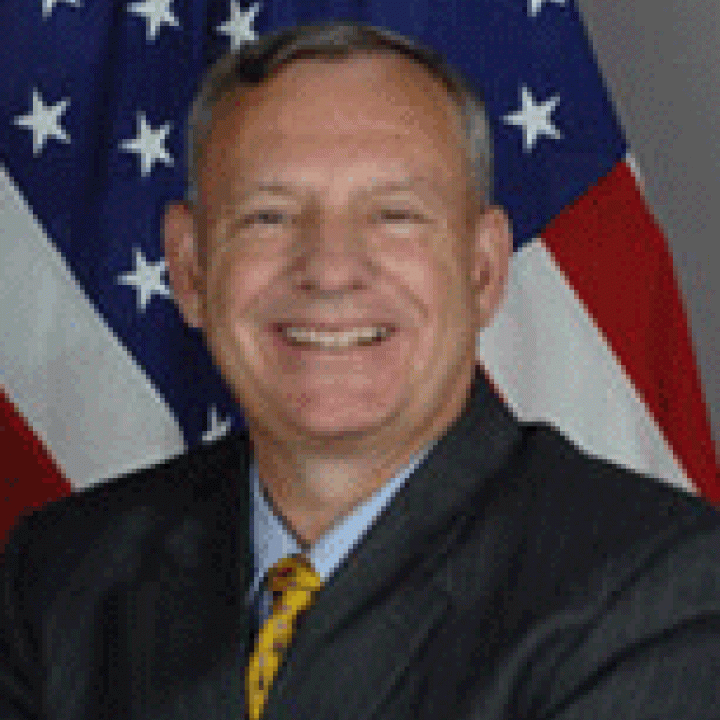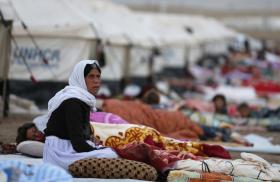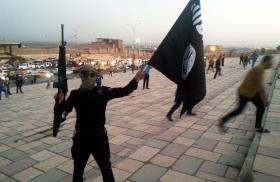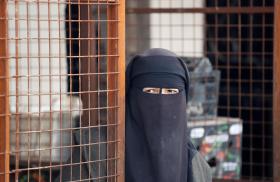
- Policy Analysis
- PolicyWatch 1321
An "All Elements of Power" Strategy for Combating Terrorism

Part of a series: Counterterrorism Lecture Series
or see Part 1: U.S. Efforts against Terrorism Financing: A View from the Private Sector
A look at how the State and Defense Departments can coordinate their efforts to maximize the efficacy of U.S. counterterrorism policy.
On December 12, 2007, Ambassador Dell Dailey, coordinator for counterterrorism at the Department of State, addressed a Policy Forum at The Washington Institute. Previously, as a U.S. Army lieutenant general, he was director of the Center for Special Operations at the U.S. Special Operations Command. The following is a rapporteur's summary of his remarks.
For the United States to make substantial progress in its global efforts against terrorism, it must employ a multi-layered strategy that makes full use of its range of resources. The United States must disrupt terror networks, fight extremism, support liberal institutions, combat government corruption, and continue to build its military and security programs. Since it is impossible to incarcerate or kill every terrorist, the United States must target the root causes of terrorism by supporting local democratization efforts and working to help countries achieve the rule of law. This constructive, rather than destructive, approach will win Washington allies around the world.
The United States and its allies have made good progress towards achieving security in the years after September 11, but there is much still to be done. Al-Qaeda is resurgent in Pakistan, and its branches continue to carry out violent acts around the world. This is the first time the United States has faced an enemy that uses the internet as a tool for recruitment and mass communication. Communication should therefore be used by the United States and its allies to shape perceptions, build allies, and dissuade potential terrorists. This must be a central component in U.S. strategy because it influences attitudes and behavior.
An interesting development in the war on terror is the franchising of al-Qaeda. Perhaps in response to the U.S. success in significantly incapacitating al-Qaeda's central command in terms of the ability to train new recruits and to carry out attacks, al-Qaeda has adopted an increasingly decentralized approach to its operations. This reveals an important weakness in both the central and local branches: neither can operate without the other. The local branches need the funding and name recognition that al-Qaeda's central branch provides, and the central command needs the local branches to train recruits and carry out attacks. Although al-Qaeda's central command role has been reduced, its inexpensive and successful propaganda efforts have remained firmly under its control.
Al-Qaeda aside, the United States must also contend with two state sponsors of terror: Syria and Iran. Syria has allowed foreign fighters and terrorists to cross through its territory into Iraq. It has sponsored terrorist organizations such as Palestinian Islamic Jihad, Hizballah, and Hamas. Both alone and in conjunction with Hizballah, it has worked to seriously undermine Lebanese democracy and to destabilize Lebanese society. Iran is perhaps the most significant state sponsor of terror. It provides funding to the same groups as Syria does, and has actively worked to destabilize Iraq by funding, training, and advising militants there.
Defeating terrorism will require a global, coordinated effort that includes partner nations. Our immediate goal should be to target terrorist networks, eliminate safe havens, and disrupt terror financing and channels of communications between cells. It is important to remember, however, that even if Washington and its allies succeed in all of this, it still will not have won the war so long as al-Qaeda and other organizations retain the ability to recruit and train new followers. There are several ways for the United States to disrupt this recruitment network.
First, the Unites States must use all of its agencies, not just the military, and increase funding for non-military, "soft power" alternatives. Secretary of Defense Robert Gates, with the support of Secretary of State Condoleezza Rice, recently called for more funding for other government agencies because both he and Rice view the war on terror as a multi-national, multi-agency effort. With an already robust military effort in place, it would be wise for Washington to channel more funding to the Department of State, Department of Justice, and Department of Treasury, among others. The United States could also do more to involve the private sector, which has a vested interest in securing global investments and fast and flexible resources.
The United States should also support the spread of terrorist rehabilitation programs, such as the one in Saudi Arabia. Saudi Arabia's program works to de-radicalize captured terror suspects so they can be reintegrated into Saudi society. Many countries operate similar rehabilitation programs, but Saudi Arabia's is by far the best because its program is tailored specifically to Saudi society and relies on principles of community values, family, and assistance. Specifically, the Saudi model treats former jihadists as victims, not criminals. First, the individual talks to a psychologist, then goes through six weeks of counter-radicalization instruction. After that, he is interviewed about his beliefs, and then released to a family or community member who promises to vouch for the individual's future behavior. The success of the program was exemplified last week when Saudi Arabia released 1,500 former jihadists back into Saudi society. Like the Saudi program, any other government rehabilitation program needs to take local realities into account.
Next, Washington must attempt to address the underlying conditions that make al-Qaeda recruiters successful. Fostering responsible governance and fighting corruption will go a long way towards eroding popular support for al-Qaeda and other terror groups. Since al-Qaeda gains strength by exploiting regional and sectarian conflicts, helping to settle these conflicts will improve American's image and deny terror groups an important recruiting ground. The United States must not forget, on all these fronts, to continue to wage the information war against al-Qaeda on the internet, which is currently the group's strongest tool. Finally, Washington must stand firm on its message that targeting innocent civilians is never an acceptable form of political protest.
Many of these objectives are beginning to be carried out by the Regional Strategic Initiative (RSI), which is Washington's response to al-Qaeda's network structure. The RSI is an effort to develop flexible regional networks to address safe havens and the cross-border flow of money and resources. Working through U.S. embassies and interagency representatives, the RSI seeks to develop a pool of resources with which to collectively devise multi-agency and multi-country strategies. The RSI emphasizes work with local partners, and has had success working with the governments of Malaysia, Mauritania, Morocco, and Mali, among others, to counter terrorist activity in these countries. This is a long-term effort, but, if successful, will do much to incapacitate terror networks on a global and local level.
The war on terror is likely to be prolonged and will require all of America's diplomatic tools and ingenuity. It will require a strong network of partners and a strategy that emphasizes offering aid to at-risk populations, combating corruption, fostering good governance, mitigating conflict between groups, and de-legitimizing terror. Despite the difficult task, the United States and its allies will win the war on terror in the long run because its world vision of hope and opportunity is ultimately more appealing and sustainable than al-Qaeda's world vision of fear and hatred.





